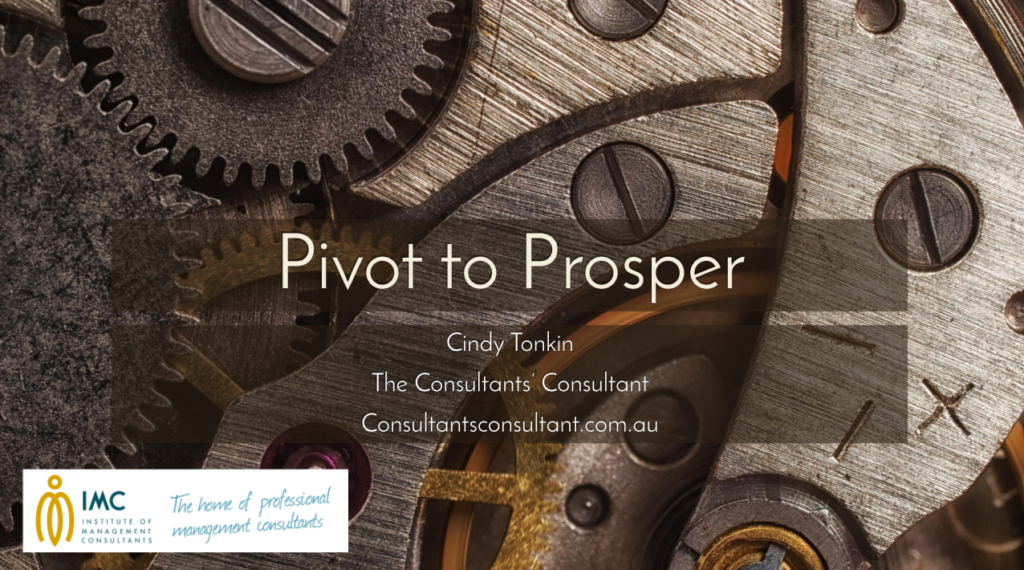
Maura Church makes data into insights at Patreon.
We talk about the importance of life work harmony, her journey from “Second violin” to conductor of the team, the experience of being a Coaching manager and why it’s important to do the important things.
She has some useful shortcuts to finding out the bottom line that you can try, as well as some tips on building a data analytics capability from scratch.
Talk to me if your analytics team needs more soft skills to solve the tricky client problems!
Ladies and gentlemen, today I have with me Maura Church, who leads a team of data scientists and we’re going to chat about all things smarter, faster, nicer.
Click here for podcasts from other women in data analytics and data science.
Maura, tell us more about you.
Maura Church: 00:36 My name is Maura. I lead a data science team at a company called Patreon. We’re about one hundred and eighty person Series C startup based in San Francisco. Our mission is to fund the creative class. We believe that creators and artists of the world aren’t paid the value that they deserve by ad monetisation models. So we provide a subscription tool for creators to get funding directly from their fans.
If you have a podcast, you can give them a dollar a month or five dollars a month and you get cool benefits in return as a patron. If you’re a creator and you have a bunch of fans, you can actually make a living directly from those fans instead of needing to rely on other models of monetisation. We have been around for about six years. We’re paying about a hundred thousand or so creators over $500 million this year. It’s been really cool to be a part of this team. I run the data science team at Patreon, which is five data scientists.
Cindy Tonkin: 01:39 WOW. And what’s your journey to get to here? How did you get to this?

Maura’s Journey
Maura Church: 01:47 I was really interested originally in the intersection of computer science and music, and computer science and art. So that’s where I came from and what I studied. I studied how to apply computer science methodology to understanding music, to analysing music. There’s like a really cool world of computational musicology that I came from. I thought I wanted to be a software engineer. I tried that and I actually had an interesting first experience software engineering where I was on a very small team and it was very non-collaborative. I thought, I’m such a people person, you know, software engineering isn’t for me because this is so isolating.
So I thought, I want to move to a field where there’s a higher level view of a problem and I’m working with more people. I got interested in data analysis. I worked at Google for a little more than a year focusing on spam and abuse detection, so hangouts fighting spam on your android dialler and kind of getting into Google voice, and it was a really interesting technical challenge. But then this opportunity opened up Patreon to work back in what I love, that intersection of tech and arts. I came to Patreon and about three and a half years ago as the second data scientist, and have grown to lead the team from there.
Cindy Tonkin: 03:00 The second data scientist. It’s like the second violin!
Maura Church: 03:00 Yeah exactly, the second violin.
Cindy Tonkin: 03:00 And now you conduct the orchestra.
Maura Church: 03:09 Yeah. I do.
Cindy Tonkin: 03:09 And do you play an instrument?
Maura Church: 03:13 I do. I am a huge choir nerd. I sing in a choir here in San Francisco and have been a classical singer all my life. I play piano and ukulele and some flute. So I take a lot of instruments, not so seriously, but I consider myself a somewhat serious singer, which has been really fun.
Cindy Tonkin: 03:34 Fabulous. I love that. There is something about it. I sing too, nowhere near probably as well as you do, and the joy of singing in a group with harmony, you can’t beat it.
Maura Church: 03:48 Yeah, I totally believe it can like cure the ills of the world. There’s something so special about singing with other people that just makes you very hopeful for the future of the human race.
Cindy Tonkin: 03:59 Exactly. You must do it several times a week and if you don’t, you won’t be healthy. So is singing and music part of what you do to work smarter? What do you do to work smarter? What are your routines?

Work/Life Harmony
Maura Church: 04:12 Yeah for me working smarter, I don’t call it a work life balance, I call it a work life harmony, Because at certain times you need your work to be a bigger focus on other times you need your life outside of work. But singing is definitely something that I do to work smarter. I spend a lot of time in the week singing and exercising and hanging out with friends.
Maura Church: 04:32 For me a lot of working smarter, especially with the team, is being really clear on what the priorities are and what the focus is. I think a lot of working smarter is – especially in a startup environment like Patreon where there’s so many things you could do and there’s like a list of a hundred things that are important for the business – getting really clear on what the top one to three things are that you want to work on that week has been a huge part me working smarter. Making sure that everyone on my team knows you have to have your priorities for the week, for the month, for the quarter, in order. That’s a huge part.
Another part for me is, I’m one of those people that has to write everything down. Like anything that happens in a meeting has to be written down, have to have a to do list, have to have documentation, which has been at least I found it very helpful and working smarter and like following up on things and knowing what’s going on.
I think another really important part for me of working smarter, is every once in a while zooming way out and understanding where I’m going, and where the team is going, and taking the dedicated time, whether it’s for my own career, like a weekend retreat and figuring out what I want to do, or the team taking a day or a half day to really figure out our strategy. I think it’s been really important to making sure we’re kind of headed in the right direction in the long term.
Cindy Tonkin: 05:49 Yes. I’m surprised that more people don’t do that. When I work with teams and we do, an offsite or a half day or whatever, every time they say “Oh my God, we should do this more often. I’m so much more clear.” So I don’t understand why everybody isn’t doing it quarterly whether you have a consultant in or not. But it seems to be something that people think “I don’t have time to do that”. As you say, the priorities aren’t set.

Important, not urgent
Maura Church: 06:17 Yeah. At Patreon a lot of managers, or a lot of teams have used the quadrant method that maybe you some podcast guests have mentioned of urgency and importance.
Obviously a lot of work that you do on any given day is important and urgent, right? Like you have to do this week or this month. But there’s this whole box of work that’s important but not urgent. And if you never do any of that work, you set yourself up to be in a really bad position.
So I think we try to call it out and say “Hey, we’re going to take three hours to do this planning session and it’s not urgent, but it is really important”.
It’s important for us feeling aligned. It’s important for the team knowing what’s going on. Just calling out and naming it can be helpful in actually prioritising that dedicated heads down time to do it.
Cindy Tonkin: 07:03 Yeah, totally because that quadrant two activity of important but not urgent, actually then drives the priorities.
In that you’re going to know your priorities. Go back to square one where you said I need priorities in order to work smarter. It’s a loop.

Maura’s Lessons Learned
So talk to me about lessons learned. Are there any particular lessons that you’ve learned over your career?
Maura Church: 07:25 Yeah, Data science and data analytics are obviously set up very differently at each company.
At Patreon we are kind of this horizontal service team that staffs a lot of different teams. So we have some data scientists that are really dedicated to one team like payments or fraud ’cause we’re a payments processing platform. We also have some data scientists that serve multiple teams.
I think the biggest lesson I’ve learned is, it’s really great to foster data curiosity. For an organisation to be really curious and ask a lot of questions.
But the really key lesson for data scientists to learn is, following up with like “What are you going to do with this information?” Like you have this question, you have this curiosity. You want to know, the number of users in Germany who logged into the mobile app five times today, and really making sure to have that follow up of making sure the information is useful to the business.
As a data science leader, it’s so important to spending my time and my team’s time wisely is making sure we’re working on the most important thing. So that’s the biggest thing. I wish that I gained that skill earlier, and I wish my teammates did. Really making sure that what we’re working on is relevant and important and going to help us in some way.

On your Data culture
Maura Church: 08:40 I think another really important thing that I’ve learned is the way you respond to a question often says a lot about your data culture.
If someone asks you a question and it’s like the most basic thing that’s totally accessible to all employees or that everyone should know and you respond with kind of feigned ignorance of like, “How could you not know that we have 100,000 creators?” It creates a negative feedback loop, right, where the person is less likely to ask a question.
So the other lesson I think that’s been really important to me is fostering curiosity and fostering an environment where you can ask. You can be a brand new employee, it can be your first day, and if you ask a data question we’re going to be excited about your question and we’re going to answer positively, and we’re going to give you positive feedback. This has been, has been really important too.
Cindy Tonkin: 09:29 So you’re talking about curiosity not just on the part of the data scientists or analyst but also if the client or the stakeholder is curious, that we should be rewarding that so that they continue to be curious even if the questions are dumb?
Maura Church: 09:44 Exactly. Yeah, I would so much rather be in an organisation where people are bombarding the data team with questions and they’re constantly asking them and coming up with hypotheses, than when people are too afraid to ask because of fear of looking dumb or fear of not knowing the right question to ask.
So I think that that’s been a really big lesson.

A coaching manager
Maura Church: 10:02 For me as a manager there’s many different styles of management, and at Patreon we are coaching managers rather than telling.
So when someone comes to us with a problem, we’re going to tend to answer it with a question rather than do thing x, y, or z.
As a manager that meant that in my first couple of years I was much less likely to sometimes ask for just what I needed. To say “Hey, will you do this thing? This report needs to be done tomorrow?, We really need this analysis to be done will you do it?”
It took me a while to realise that you can still sometimes ask as a manager for something to be done without being a micro manager and getting into the stigma of over managing your employees. It took a while for me to be comfortable to actually ask “This needs to be done.” Which I think is the opposite of a lot of managers who maybe start asking too much and then realize how to coach. But for me it’s been very freeing to feel empowered that you can have a good balance of coaching and sometimes telling.
Cindy Tonkin: 11:05 What happened to make you aware of that? Was there an event, or did someone advise you to kind of go “Hey, you can actually give people assignments as well as wait ’til they say, they want something to do.”
Maura Church: 11:22 Yeah, yeah. I had a really good coach who helped me think that it’s good as a manager to evaluate your level of delegation. To look at all of your projects and ask “Should I actually be doing all of these things for my role, or are there parts of this that are better served by someone else in the team doing them?”.
The coach’s instinct to be like “Hey Maura, you might want to take some of these projects and delegate them, and not delegate them as in like who wants to do them, delegate them as in saying “Hey you, I would like you to own this project. I think it would be great career growth and a good opportunity”, and really lean into the discomfort of asking someone to take something on.
Because it’s good for the employee and it’s good for you, and it’s good practice as a manager to identify what really is within your role, and what might be served by someone else’s role.
It really took a coach, identifying that when I was too stressed out about stuff for me to re-evaluate what was appropriate and what wasn’t once you become a leader of a team.
Cindy Tonkin: 12:17 Yeah. And that’s a big jump, isn’t it? Going from being second violinist to suddenly the conductor. What did you do? How did the transition go for you?
management is a totally different role than an individual data scientist.
Maura Church: 12:31 Yeah, I think it was scary at first, but I was really well supported. Patreon is a very supportive management group and a lot of training, a lot of education. I think the biggest thing that’s been important is just recognising that management is a totally different role than an individual data scientist. That it has different skills, you’re growing in different ways, and that not one is better than the other. I think that’s a very important message for all employees to have. That you don’t have to be promoted to become a manager. You can grow within an individual contributor track.
Also managers, if you are a manager, make sure that the career growth of a manager is what you want. That you want to learn to coach and to prioritize and to lead strategy and all of that. I think that that was really key to me feeling excited and comfortable about being a manager, looking at the career paths and understanding where they went and what they would entail learning.

What makes for Smarter data people
Cindy Tonkin: 13:26 Cool. Excellent. Other questions. Better or worse data people? Is there something that you think makes good traits, good ideas? What makes a better or worse data person?
Maura Church: 13:38 Yeah. One of the things I’ve been talking a lot about recently with the team that makes a good data person, is knowing when to stop.
a good data person, is knowing when to stop.
Cindy Tonkin: 13:49 Exactly! Yeah
Maura Church: 13:49 Especially if you’re in a field or an area that’s really green field, right? Really undiscovered.
We at Patreon are studying membership and we really have a lot of data that people have not seen before.
It’s not like we’re a food delivery app and there are seven other companies that have done it. It’s seeing the first data understanding of what membership looks like. And I think that’s so exciting. But the challenge with that is you could research this one question for five weeks and just keep going and going and going and going, and adding additional data cuts at different characteristics.
“I really value when a data scientist knows how to scope a problem, and how to say “Okay, here’s the basic understanding. Here’s the advanced understanding. And then, here’s the stuff that we’re not going to get to because it’s not going to add value”
I really value when a data scientist knows how to scope a problem, and how to say “Okay, here’s the basic understanding. Here’s the advanced understanding. And then, here’s the stuff that we’re not going to get to because it’s not going to add value”. That’s definitely a skill and a characteristic that I look for in hiring and also in the team, I try to cultivate that.
Maura Church: 14:41 Another one that’s so important to me is curiosity. If your team is not interested in understanding messy data, or in looking at a new problem and asking a follow up question, that can be a big red flag if there’s like not an interest there.
I think that’s super important because there are so many areas within analytics. You can be in finance or healthcare or education, and making sure you’re finding people that are inherently curious about that specific field. For us at Patreon it’s interest about creators and about art and about content and YouTube and all that stuff. So curiosity is really important to me.
I think the biggest difference between a good and a great data scientist or analyst is communication.
Then I think the biggest difference between a good and a great data scientist or analyst is communication. They can bridge the gap with stakeholders. They can write up a great technical summary. They can really condense a problem into the simplest parts. That’s a skill that takes the most investment in time and learning, because it’s often very specific to the field.
Cindy Tonkin: 15:43 Absolutely. So how do you recruit for those kinds of things? Do you have a particular structure you use?
Maura Church: 15:50 Yeah, at Patreon we think of recruiting in three elements. The first is we definitely have a technical bar, which is just like everyone in the team should feel really comfortable querying data and writing scripts and python. We spend most of our days querying. So if you are uncomfortable querying – like, that is a very important skill.
Cindy Tonkin: 16:11 Yeah. You don’t even get to talk to Maura if you don’t have that. Right?
Maura Church: 16:17 Yeah. There obviously is a spectrum there. We have senior data scientists versus folks who are more junior. But you’re going to spend most of your day writing some sort of SQL. If you don’t like doing that and you’re uncomfortable with it, it won’t be that fun.
The second is kind of what I mentioned around communication. A lot of that we test with more like open ended questions, like “Tell me about a time when you worked with a product manager to resolve an issue with analytics”, or something. So that strong communication can come out usually from behavioural questions and interviews.
Maura Church: 16:51 Then another thing we really searched for at Patreon is problem solving.
Since we’re a startup we’re quite autonomous. So it’s not as if you are going to have someone next to you all day who’s going to help you solve a problem and figure out a bug. It’s like, “Hey, figure this out. Good luck. Go do it.” So we asked some pretty open ended modelling questions.
We might ask a question that’s like, “How would you model the churn rate of patrons on Patreon?” And just like, stop the question there and just see where they take it. And see what data they asked for, and kind of see where the candidate will go. Because many of the questions that we’re looking at are that open-ended.
So being able to kind of take a question from very high level, very open ended to like specific data set and queries is a really important skill for our team.
Then obviously we look at like, are they interested in creators and do they care about our mission? There’s like a whole cultural side as well. That’s super important.
But in terms of the data science, I think the technical bar, the communication and problem solving are the key for me.
Cindy Tonkin: 17:52 Absolutely. Yeah, absolutely. Do you like to take people who have a creative background themselves or is that icing on the cake?
Maura Church: 17:59 Yeah, that is definitely icing on the cake. It’s funny, a lot of candidates will come in and be like, I don’t play piano. Can I work here? But of course, there’s so many different kinds of creative right? If someone also has a personal passion that’s great, but in no way is that like a requisite. I think that would be kind of weird, a cultural bar to have.
Cindy Tonkin: 18:25 It depends on how many data scientists are out there really?
Maura Church: 18:29 I do think it’s great that we do have a piano and guitars in the office. And we do have a bunch of people who are like, “Hey, I don’t play, I’m not musical at all, but I can enjoy a performance.” Which of course is always fun to be able to share that passion with co-workers.

Professional Development
Cindy Tonkin: 18:46 Okay. We talked about recruitment. Professional development. For you, how do you develop yourself professionally? What do you do?
Maura Church: 18:53 I’m a big fan of conferences and lucky enough to be in the Bay Area where there are a ton. So I’ve gone to the Women in Data Science conference that’s run out of Stanford and now has global locations is really fantastic.
Definitely on the technical side of things feels like it keeps me up to date in terms of what’s going on in academia and with models, and with knowing what’s latest and greatest. There’s data science conference run by Domino called Rev that just happened in New York, which is also really great. And that’s much more on the leadership side.
How do you lead a team of data scientists, how are you setting up your team and setting goals and all of that. Which is great. And then I’m a huge fan of taking courses, continuing education courses and deep learning and continue to build a foundation of data science skills. And then of course, I’m a huge fan of data science Twitter, which is like a whole world in and of itself.
Cindy Tonkin: 19:49 I didn’t know about data science Twitter. What’s data science Twitter?
Maura Church: 19:51 Yeah, There’s a whole group of data science practitioners that tweet about data science and data science leadership and what their companies are doing related to data science.
So I try to follow as many thought leaders, if you will, on Twitter and keep in the loop. Especially with, again, being in tech in the Bay Area there are companies that have much larger data science teams like Airbnb and Netflix and Facebook and Google and keeping up with what they’re releasing and what’s going on there so that, I feel like I know how other teams are structuring their work.
Cindy Tonkin: 20:23 So it’s a form of networking without having to leave your desk.
Maura Church: 20:26 Right, exactly. Networking for people that are scared of networking, is the summary of Twitter.
Cindy Tonkin: 20:33 Now you mentioned doing courses. Is there a particular place you like to do courses. Do you do them online, do you do them live? What do you do?
Maura Church: 20:41 I’ve done them at Stanford, which is also in the Bay Area. The ICME, which is their computer school there, offers courses that are open to everyone, which is great, open to the public. I’ve taken a few of those. I also do like some online, like Coursera stuff once in a while. Especially if there’s new courses that are released.
Cindy Tonkin: 21:02 Coursera, people tend to mention Coursera. It’s obviously the go to place for data science.
Cindy Tonkin: 21:10 Talk to me then about complex explanations. Do you have a particular model you like to follow? Is there something that you know, doesn’t work?

Complex explanations
Maura Church: 21:19 The thing that we try to do with Patreon when there’s a really complex problem is to try to get it down to a one to two sentence summary. Always lead with that. To do the hard work of getting it to that summary, even if it takes a while to figure out how to boil it down , that’s super important.
I think knowing who your audience is and where they’re coming from is important as well. We’ll bring a complex problem or a complex analysis to a product manager in a very different way than we might to someone who’s on the marketing team or on the sales team. So I knowing their frame of reference for the problem or for the solution.
And then, I’ve also used the triangle framework. I don’t know how popular this is, but it’s where think of the information that you’re giving as a triangle and starting at the top.
So saying like, “Hey, the short summary is that this product change improved our conversion by 20%”. Then going down the triangle and saying, “What we did is we implemented this thing, and it did this thing, and here’s what we learned.” Then you can check in with the person and say, “Hey would you like to learn more?”
Maura Church: 22:28 And if they say yes, you can go to the very base of the triangle and give all the information. We were on the test for 20 days and here’s what the randomization looked like, and all of that. Allowing yourself as the speaker, as someone communicating to move throughout the triangle, depending on the audience, what kind of information they need.
I think this is super important data science because often we joke that the accuracy of the claim of the data science statement can become less accurate as it goes to different audiences, right?
The CEO’s interpretation of an analysis is often way off from what the original analysis is, and then somehow if it makes its way into a press outlet or the paper completely contorted. So we like to talk about the level of information needed for the executive team. Which is something that our data science team is doing a lot.
Producing analysis for the executive team is very different than the level of information needed for another data scientist. So a lot of it is understanding what format the consumer expects to hear the information in and tailoring that format to what they’re used to.
Cindy Tonkin: 23:32 Nice. Yeah. Context is everything, right? How you explain to a kindergarten kid is not the way you would explain to someone with a PhD in AI.
I read an article recently on LinkedIn, it was Adam Grant, and he was talking about there are these insights that are so obvious that I didn’t think I needed to point them out, but for some people they are not obvious. So even the obvious insight is sometimes important.
It’s about distinguishing between what we think is obvious and what the person you’re listening to might not even be aware of.
At Patreon you can actually interrupt someone if they’re going off on some detail analysis and say “Hey, I just need the bottom line version of it. Like, what do I need to know as a decision maker?
Maura Church: 24:15 Yeah. It’s, funny because I think what’s been nice too is that at Patreon we have a framework for this. We call it the bottom line version of a conversation.
So you can actually sometimes interrupt someone if they’re going off on some detail analysis and say “Hey, I just need the bottom line version of it. Like, what do I need to know as a decision maker?” And because we’ve all know that the bottom line answer is a thing, it’s not rude to say “Hey, give me the bottom line”. Which is nice.
Having frameworks within organisations that help people understand how to communicate and what level of communication is necessary, can be really helpful to doing things in an efficient way.
Cindy Tonkin: 24:52 Absolutely. And when teams don’t have those traditions, well they can make them. They can stop, and they can say “Hey, I listened to Maura and she said this is what I should do, and I’m going to do it with my team”. Some of the things are so simple you don’t think they’ll work. It’s the simplicity of it that seems to make the difference.

Building analytics capability: from scratch
Talk to me about if you had to set up data analytics or data science team from scratch. What would you take into account?
Maura Church: 25:26 Oh yeah. It depends a lot on the stage of the company. Depending on the infrastructure that’s set in place. I joke with my team all the time that when I joined Patreon we had a python script that was writing our metrics to a Google sheet every day. And every day, the Google sheet would get wiped completely clean and would be reset with metrics.
And now we have a big spreadsheet analytics cluster, and we have all these queries and dashboards and reports. It’s this whole built beautiful thing.
But you start with where you need to start based on the stage of the company. So I think that’s a huge key is I want to understand where the company is.
Maura Church: 26:01 One thing I would think about a lot in starting an analytics team is the right mix of people. I think it’s really helpful to have someone who is either a data engineer or a quasi-data engineer early on. And someone who really loves analytics, who loves writing straightforward SQL queries, who loves visualising stuff in charts and who can actually build the company’s understanding of their business. So the makeup of the team.
You don’t want just a team of, you know, all PhDs or just a team of all former business analysts or just the team consults or whatever. I’m really thinking about the diversity of that team.
Maura Church: 26:37 Then another thing I would definitely think about is the mission of the team.
There are data science teams that are really research focused that are going to go off in a corner and do really heads down long research projects that might change the trajectory of the company.
Then there are teams that might be way more service oriented. Then it’s like, “Hey legal team, what do you need? Let me answer that with data. Hey financing, what do you need? Let me answer that with data”.
So understanding what team’s structure and mission is going to serve the company would be super important to me.
Then all those things we talked about with hiring.
Like finding people that are curious and communicative, and really excited about what the company is doing are really important to the founding structure.
Cindy Tonkin: 27:20 Absolutely. So I’ve been talking to some clients recently for example, who have no data and they’ve been around for 50 years. They have got lots of data, they’re just not doing anything with it.
So when they form an analytics team from scratch, part of the things they need to take into account is, “How do we actually even let the organisation know we exist and do what we do?”
‘Cause you’re right.
If we’ve just started and now we just got to make sense of this, is a very different thing to we’re a 200 year old organisation with all this data we’ve never looked at before, that’s on spreadsheets somewhere.
But really, you know, there’s probably some things we could do with our data.
a lot of the foundational work is really establishing trust.
It’s a tricky, tricky stage because the client or the stakeholder doesn’t even know they need you yet. So you going to them saying, “What are your problems? Let me answer that with data” is a very nice way to open up those conversations.
Maura Church: 28:18 Especially in organisations that don’t see the need for data yet, a lot of the foundational work is really establishing trust.
It’s really saying, “Hey, we’re the data team. We have information that is accurate and is of high quality. We hold ourselves to a certain standard. Here are problems that we’re going to solve and here are insights that we’re going to create”.
I think that some people are very lucky to go into data science organizations where there’s already trust established. Where they don’t need to prove the value of data.
Then other people are kind of working against the current and saying, “Hey, data is valuable. It’s going to help our business. We’re going to be more successful and profitable” and all of that. And that can be a very different narrative of a team depending on what larger organisation you’re in.
So definitely understanding the organisation’s capacity to understand data and to want data, and to use it is super important, and knowing where your team is going to sit and what they’re going to do.

Favourite Charity
Cindy Tonkin: 29:10 Yeah, totally. Exactly. So my final question is what’s your favourite charity?
Maura Church: 29:16 I’ve been on the board of a non-profit called Chanticleer, which is a performing arts organization here in the Bay Area for the past three years. And they’re awesome. They’re a male vocal ensemble. They sing all over the world. So I really have loved working for them and helping the work that they do. Which is to spread music throughout the world, and educate people about it. Which as you might’ve gathered is super near and dear to my heart.
Cindy Tonkin: 29:41 Bring it on! Exactly.
Maura Church: 29:44 Yeah. And then I also have to mention Code 2040, which is a really cool organisation also based here that works with kids and high school kids from under represented groups and teaching them how to code and helping them learn. So sets up a much healthier and more diverse pipeline into tech, which is another huge passion of mine, bridging the gap and making things more equal inside of tech.
Cindy Tonkin: 30:08 Nice. So what equal. Is that a gender difference, an ethnicity difference, a socioeconomic difference?
Maura Church: 30:18 Yeah, Code 2040 is focused on the racial demographic. So under-represented racially.
Cindy Tonkin: 30:25 Excellent. Do you have any questions for me?
Maura Church: 30:30 Oh Man. I would love to know, for that last question. For you, what do you see as being most important in the early days of setting up a team from all the experience that you have?
Cindy Tonkin: 30:42 Oh, Excellent. Well, I agree with everything you said. And I’ve been asking the question of a number of people and I will make something. It’ll go onto LinkedIn at some point.
The thing that I’m noticing is, especially in established organisations where they don’t have data, is that people are looking for a mythical analyst beast, that not only has all of the database data stuff you want, but can also engage stakeholders and get stakeholders excited about, “Oh!, We’re going to have the capacity to look at our data!” And I don’t believe those skills all reside in one person.
I know maybe two or three of the nine hundred or so analysts who are my friends on LinkedIn. There are two or three that I know of who can actually do the sales-y part, but they are actually not really strong on the data part. It’s kind of like, it’s nice to have both, and it’s a mythical beast.
The thing that certainly I’ve been suggesting to my clients is, you can hire that stuff in.
Get someone to design you some workshops and co-facilitate with a workshop facilitator who loves it and is good at engaging the people.
And have the kind of buddy who’s able to actually talk about your regression analysis or whatever you want to say – assuming that a stakeholder even asked about that. Which they might because they’ve read an article somewhere.
That balance of getting the analytics skills is important.
Having someone in the team who can at least interface with the engager. But thinking that the same people are going to engage is a furphy, unless they’re instructed on how to build trust.
So your point: it’s about let’s build trust with the organization first, and then when they trust us we can do what we need to do.
Cindy Tonkin: 32:52 Our tricky world of internal consulting.
Ultimately analytics in organisations is internal consulting because you’re internal to organisation. Trying to help them do their thing.
It’s that distinction between what the client thinks they want and what you know they probably want, actually need, and that’s the tricky thing.
I spend a lot of time helping analysts and leaders of analytics teams essentially start to structure and put in systems that take the people into account. You know: How do we take a brief? How do we build trust? How do we know it’s time to move forward with a client? How do we know to stand back?
The stuff you were talking about earlier about standing back from the relationship and asking what’s working, what isn’t working? How can I engage this person more? How can I pull back so that they have a chance to essentially assess where they’re up to.
Cindy Tonkin: 34:02 My thing is all about the people side of consulting and analytics. All of my concerns are around get the people right. Right people in the job.
But also give them the skills, those soft skills. A lot of soft skills, we can systematise. But you need to have people realise they need to use them.
There’s got to be some kind of trigger in their environment that says, “Ah! Now you have to build trust. Okay. The process is a, b, c, d, e”.
I think the best service we can do for people is to give them an understanding of: at this point you should change your behaviour and pay attention to trusting us. At this point you should change your behaviour and stop talking and ask questions. I think those things can be systematised for individuals who don’t necessarily have those scripts in their experience. Hey, when I was 20, I didn’t have those scripts either.
I think probably once a week someone on my team comes to me and says, “Hey, this person asked this question. But what they really mean is something totally different”.

What the client really needs and wants
Maura Church: 35:02 Yeah, funny the thing you mentioned, you know, I think probably once a week someone on my team comes to me and says, “Hey, this person asked this question. But what they really mean is something totally different”. You know, that interpretation step of working as a data human, and working with other people and being able to take what they ask you and turn it into what they actually need to make a decision.
Cindy Tonkin: 35:28 Absolutely.
Maura Church: 35:28 That’s a hard skill. You know many times I think folks on my team, and myself as well, have learned it by getting it wrong. By answering the question that someone gave them and then delivering it and that person being like, “Ah, actually I need something totally different!” Then going through five rounds of revising a question and that’s a skill that can take a really long time to hone and to get right.
Cindy Tonkin: 35:51 Totally. I know that in my twenties I went and did an assignment with a client. She had four different consultants who had already been through. It was a quality job. It was back in the nineties. We were doing quality.
The client just kept saying, I want key performance indicators. And they kept saying, oh no, but first you have to do this and this and this, and all those fishbone diagrams, and root cause analysis and blah, blah, blah.
And the client had said “I just want KPIs. That’s all I want. Give me KPIs”. So she kept kicking consultants out.
So they sent me in going, “look, you know, she’s impossible and maybe it won’t work, but hey, try”.
Basically I said, “Great, you want KPIs, let’s give you some, they won’t tell you everything, but if you want them, have them”.
That woman has basically fed me many, many years in my consulting career. I am just finishing a job right now for someone who she introduced me years later.
Because I gave her the KPIs that she wanted.
They weren’t high quality. They weren’t exactly right. They didn’t give her all the information she wanted.
But that was gave me then the possibility to say, “so now that we’ve got those, let’s do this – do a fishbone diagram, do a root cause analysis, do a workload analysis, all of those things – and see how that changes the indicators. And then we’ll work on them”.
So some times you have to give the client what they asked for. Even if you know it’s not what they want.
That gives them the sense of they’re in control.
Not you coming in out of the blue going, “Hey, I’m the expert, I’m from head office, I’m going to help you”. So it’s that balance. But yeah, I think, it’s people. We’re complex.
Maura Church: 37:37 Yeah. There’s this great talk. It just reminds me cause I was just there two weeks ago at Rev, the State of Science conference, and Josh Wills, who’s an engineer at slack gave this talk that was very hilarious, he’s very funny. But one of the things that he mentioned was this idea of the map is not the territory.
Cindy Tonkin: 37:53 Oh, yeah. NLP.
Maura Church: 37:54 I brought that back to my team and said “This is perfect. It summarises all of our challenges”. Which is, you as a data scientist are tasked with making a map of someone’s territory. That map might be metrics, it might be analysis, and it might be dashboards. At the end of the day, what you make is not actually the territory that the people on that team are in every day, and that they know like the back of their hand.
So you have to be very careful when you’re presenting the map because people can get very defensive. They can say, “Hey, that metric is going down, but I’m working in this team and I know what it’s like and we’re doing great work”. Knowing that concept as a data scientist – of “hey, the map I’m making is not the territory and I need to respect the experts and make sure that that’s a give and take and a conversation”- has such a great idea that I love for helping data scientists understand the limits of where the map can go.
Cindy Tonkin: 38:41 Yeah, exactly. And it gives them an idea. I remember years ago I went to a David Maister training – I think David Maister isn’t working anymore, davidmaister.com – and he had a lot of stuff for consultants.
In his book, which was called Managing the Professional Service Firm, he had a whole chapter on how you have to understand what it’s like to be a client. Because they’re used to being in control and now they’re not. You’ve come in as the expert or a specialist or the advisor, and so they feel dumb. They feel anxious that you’re going to find the cracks in their armour that they’ve so well pretended aren’t there.
That whole anxiety of being a client is quite real. I think we don’t always recognise the people part of doing the consulting.
We think what we want is the best solution, but you also want people to be human. Yeah, it’s a very interesting balance. So, yeah. So anything else you want to say, Maura?
Maura Church: 39:56 If you’re listening to the podcast and you’re a fan of creators definitely support them on patreon.com and check them out. There’s like tons of creators, artists to support, and lots to discover.
Cindy Tonkin: 40:08 Perfect. Thank you so much Maura. It’s been a wonderful time to have all my prejudices reinforced by a real leader in data, and all my beliefs about what’s important. It has been fabulous. I’d love to interview you again in say six months time when I have new questions. Would that be alright?
Maura Church: 40:26 Wonderful. Thank you Cindy. I would love that.
Cindy Tonkin: 40:36 This is Cindy Tonkin. I’m the consultants consultant and you’ve been listening to smarter data people. This is part of what I do to understand how it is that data scientists can be more effective in the workplace, smarter, faster and nicer. And if you have a team and you’re finding them harder to manage than they could be. If you’re constantly trying to squeeze more out of your budget and out of their time. And if they’ve got stakeholders who are less than happy, sometimes maybe a lot more than some times, it can be really annoying and it can make you feel incompetent.
I can help you help them get to the important problems faster, target the wasted time and save you time and money, and ultimately delight stakeholders so that you can feel competent again. It’s such a good feeling. Talk to me.






